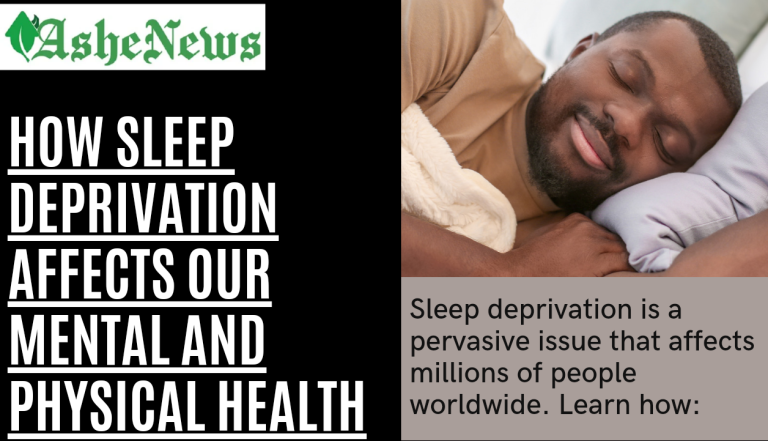Sleep deprivation is a pervasive issue that affects millions of people worldwide. In our fast-paced society, many individuals prioritize work, responsibilities, and entertainment over obtaining adequate and restorative sleep.
However, this lack of sleep can have a significant impact on both our mental and physical health. Mentally, sleep deprivation can lead to an array of challenges. One of the most noticeable effects is a decline in cognitive function.
This includes impaired concentration, reduced attention span, and decreased problem-solving abilities. When we are sleep-deprived, our brain’s ability to process information efficiently diminishes, resulting in slower thinking, poor decision-making, and memory issues.
Furthermore, sleep deprivation can also greatly affect our emotional well-being. Studies have shown that individuals who regularly lack sufficient sleep are more prone to experiencing negative emotions such as irritability, mood swings, and anger.
They may struggle with regulating their emotions, leading to increased emotional reactivity and a reduced ability to cope with stress. Sleep deprivation has even been linked to an increased risk of developing mental health disorders such as depression, anxiety, and bipolar disorder.
In addition to its effects on mental health, sleep deprivation has severe consequences for our physical well-being. One of the most obvious impacts is an overall decline in physical performance and stamina.
Lack of sleep impairs our coordination, reaction time, and agility, putting us at a higher risk of accidents and injuries. Moreover, sleep deprivation weakens our immune system, making us more susceptible to infections, illnesses, and chronic health conditions.
Another aspect impacted by sleep deprivation is our cardiovascular health. Research has shown that individuals who do not get enough sleep are at a higher risk of developing cardiovascular diseases such as high blood pressure, heart disease, and stroke.
Sleep deprivation disrupts our body’s natural processes, leading to increased inflammation, higher blood pressure, and elevated levels of stress hormones. Prolonged sleep deprivation can have detrimental effects on long-term heart health.
Furthermore, sleep deprivation affects our metabolism and appetite regulation, leading to weight gain and an increased risk of obesity. When we lack sleep, our body produces higher levels of hunger hormones, making us crave unhealthy foods, particularly those high in carbohydrates and sugars.
Additionally, sleep deprivation alters the way our body stores and processes glucose, increasing the likelihood of insulin resistance and Type 2 diabetes.
It is important to understand that while occasional nights of poor sleep might not have a significant impact on our overall health, chronic sleep deprivation is a serious concern.
Poor sleep habits and ongoing sleep deprivation can gradually lead to a cascade of physical and mental health problems, affecting our overall quality of life.
To mitigate the effects of sleep deprivation, it is crucial to prioritize and cultivate healthy sleep habits. Establishing a regular sleep schedule, avoiding stimulants like caffeine and electronic devices close to bedtime, and creating a comfortable sleep environment are all helpful strategies.
Recognizing the importance of sleep and understanding its profound impact on our mental and physical well-being can motivate us to prioritize restorative sleep and take action to safeguard our health.


